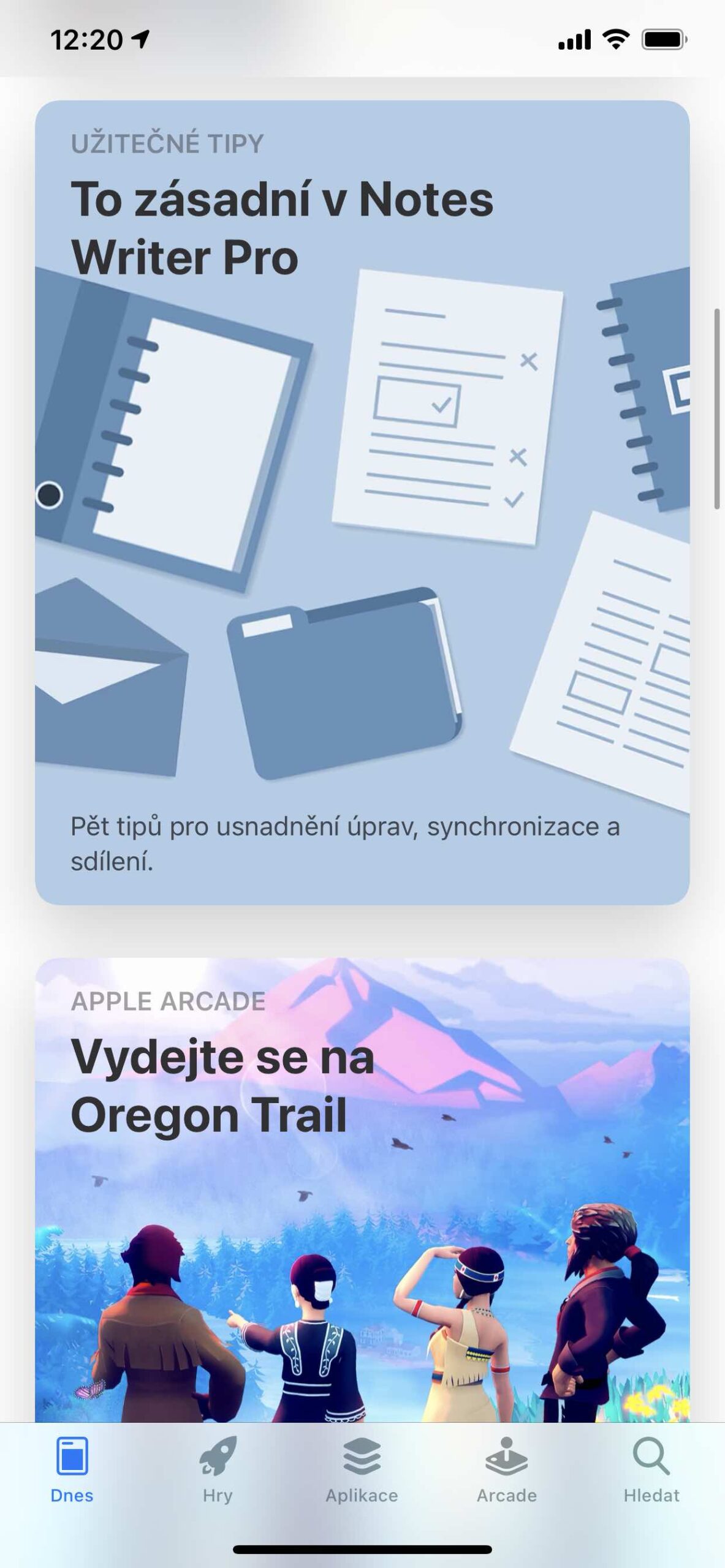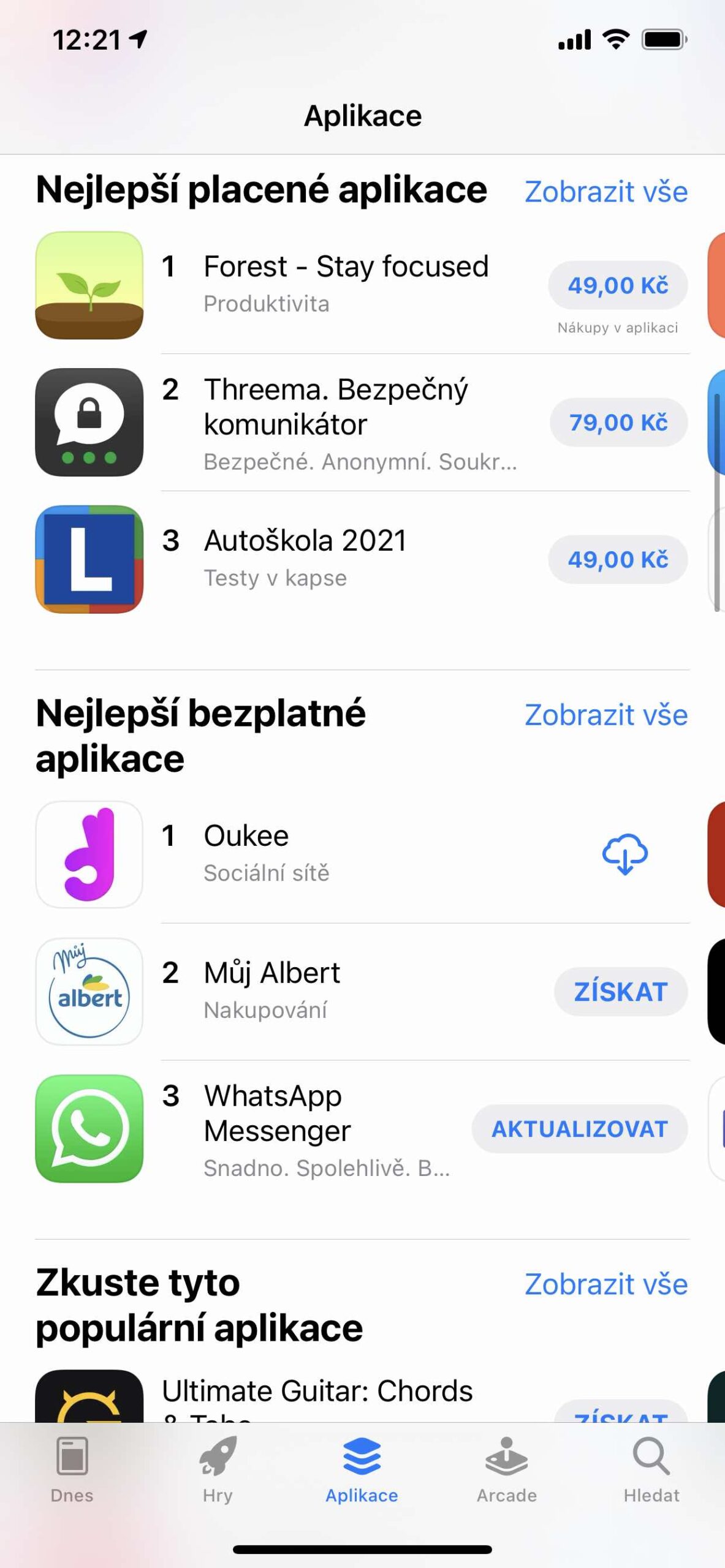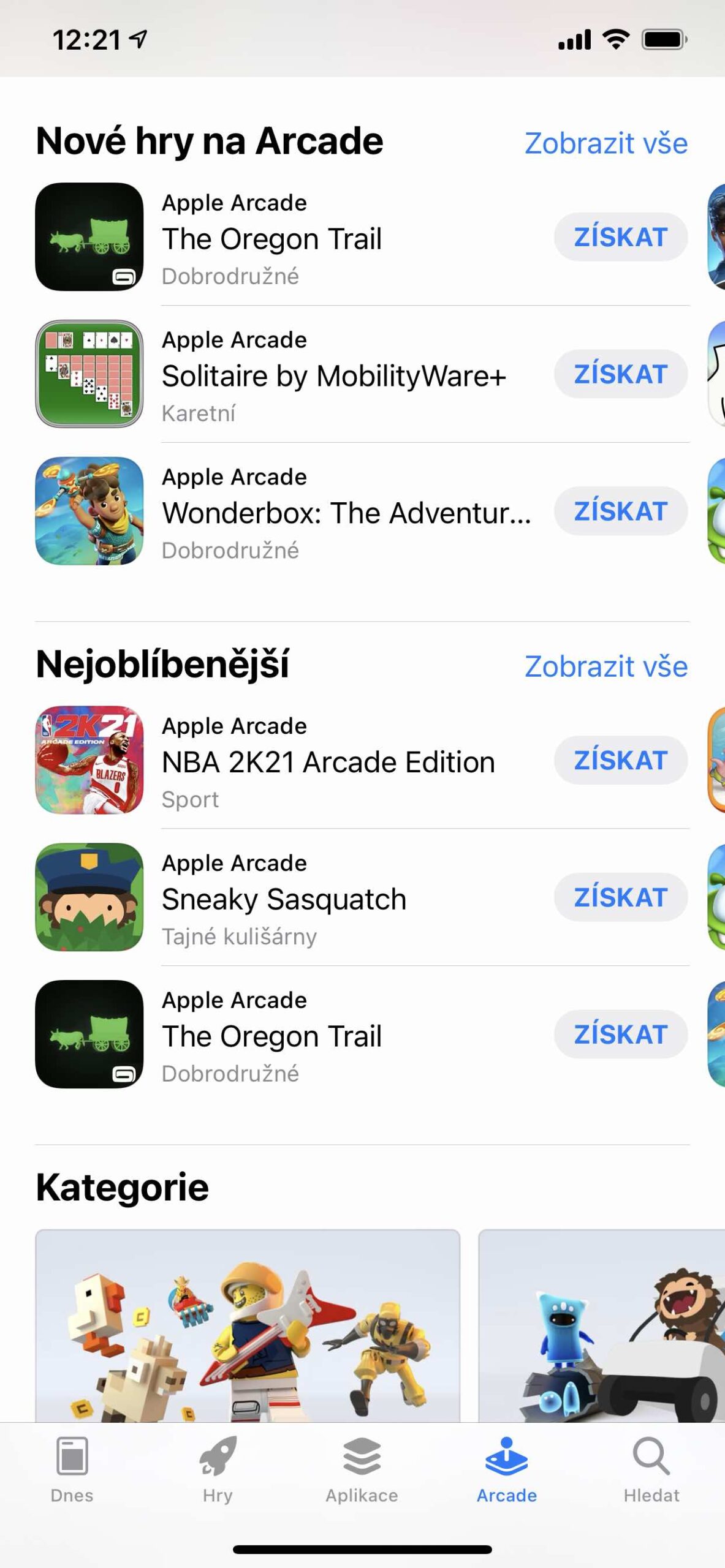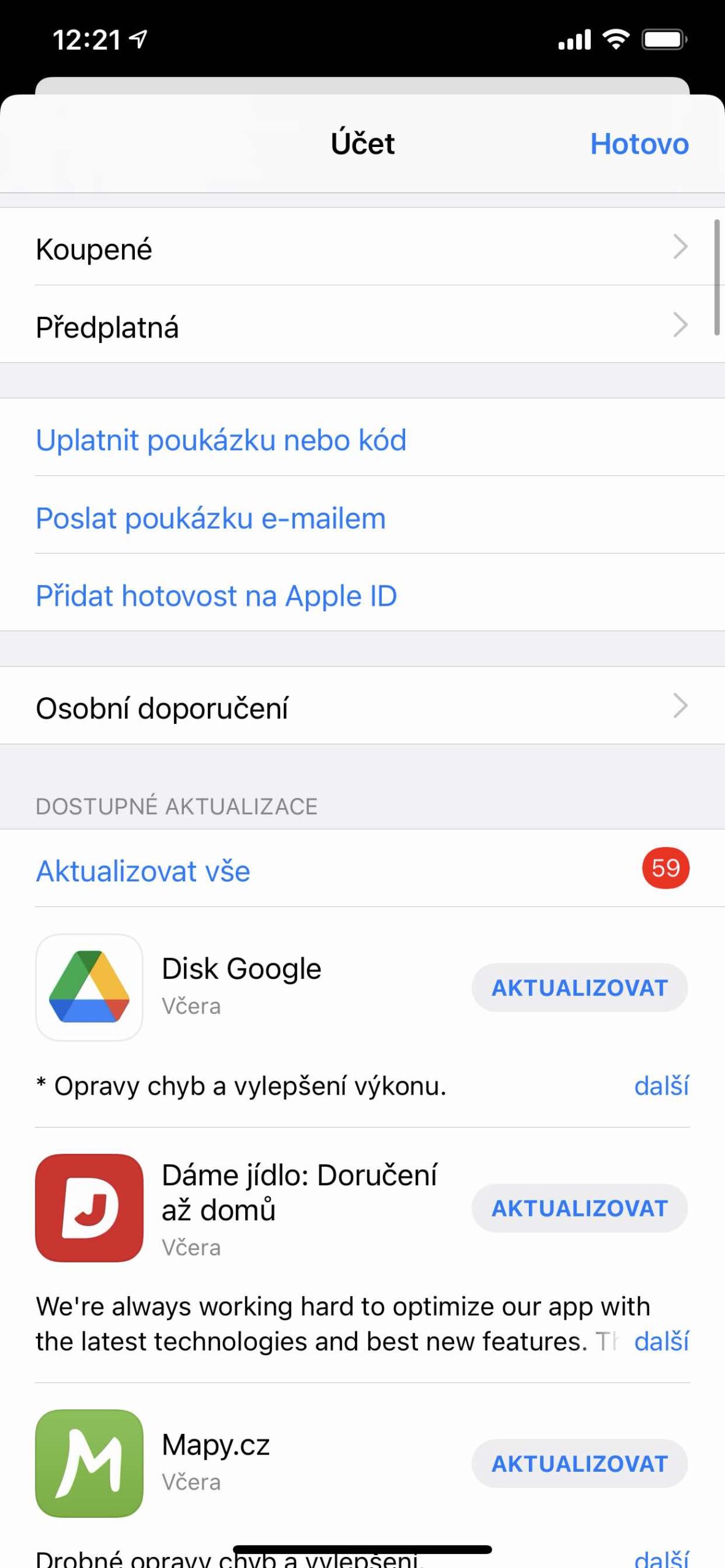Threats to the App Store have existed since the first day it launched on the iPhone, and have grown in both scale and sophistication since then. That's how Apple's press release begins, in which it wants to inform us about what it's doing to keep its store safe. And it's certainly not enough. In 2020 alone, it saved us $1,5 billion by detecting potentially fraudulent transactions.
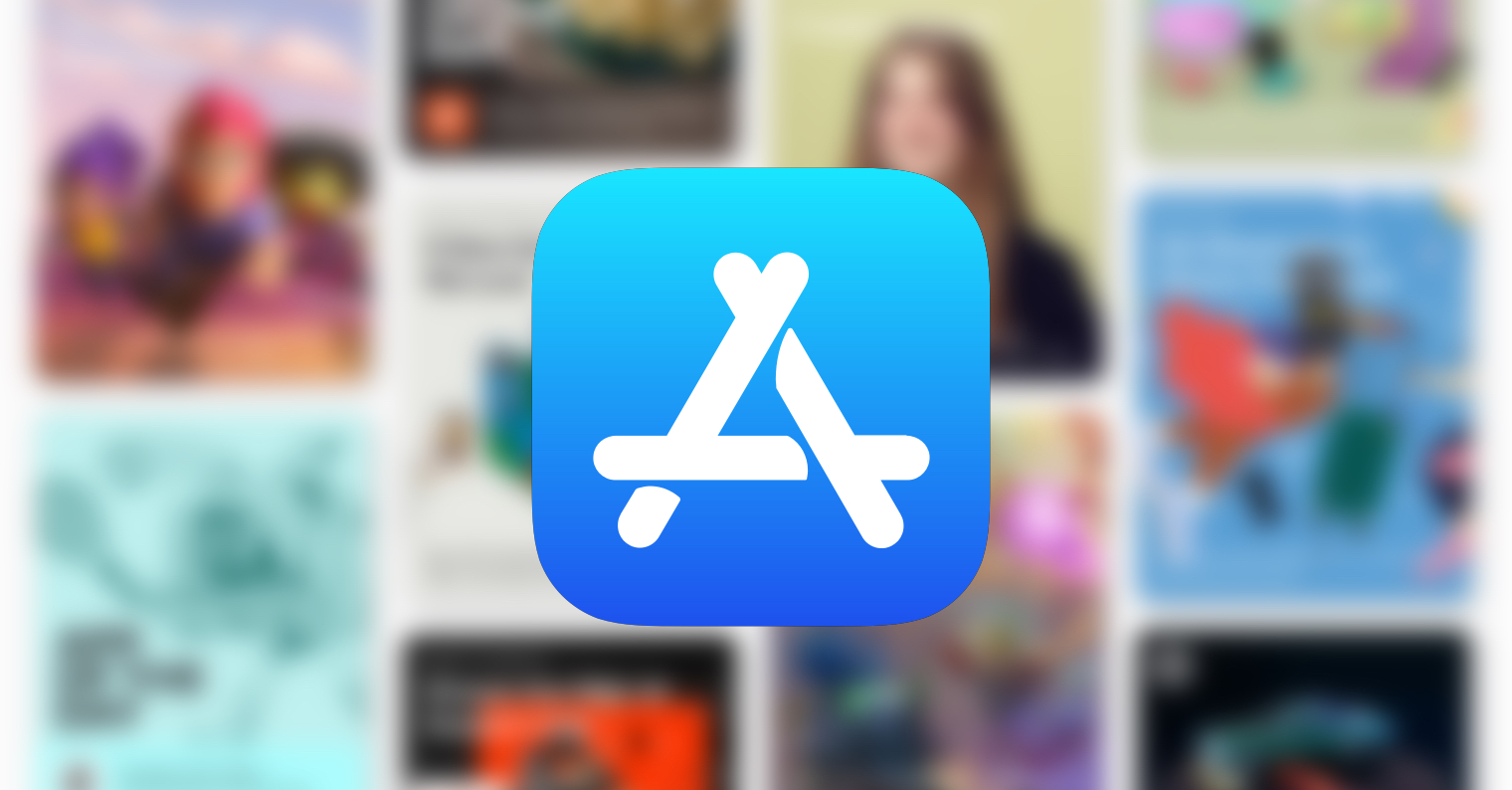
The combination of technology and human knowledge protects the money, information and time of App Store customers. While Apple says it's impossible to catch every fraudulent title, its efforts to combat malicious content make the App Store the safest place to find and download apps, and experts agree. Apple also highlighted some of the ways it fights fraud in the online app market, which includes an app review process, tools to combat fraudulent ratings and reviews, and tracking misuse of developer accounts.
It could be interest you
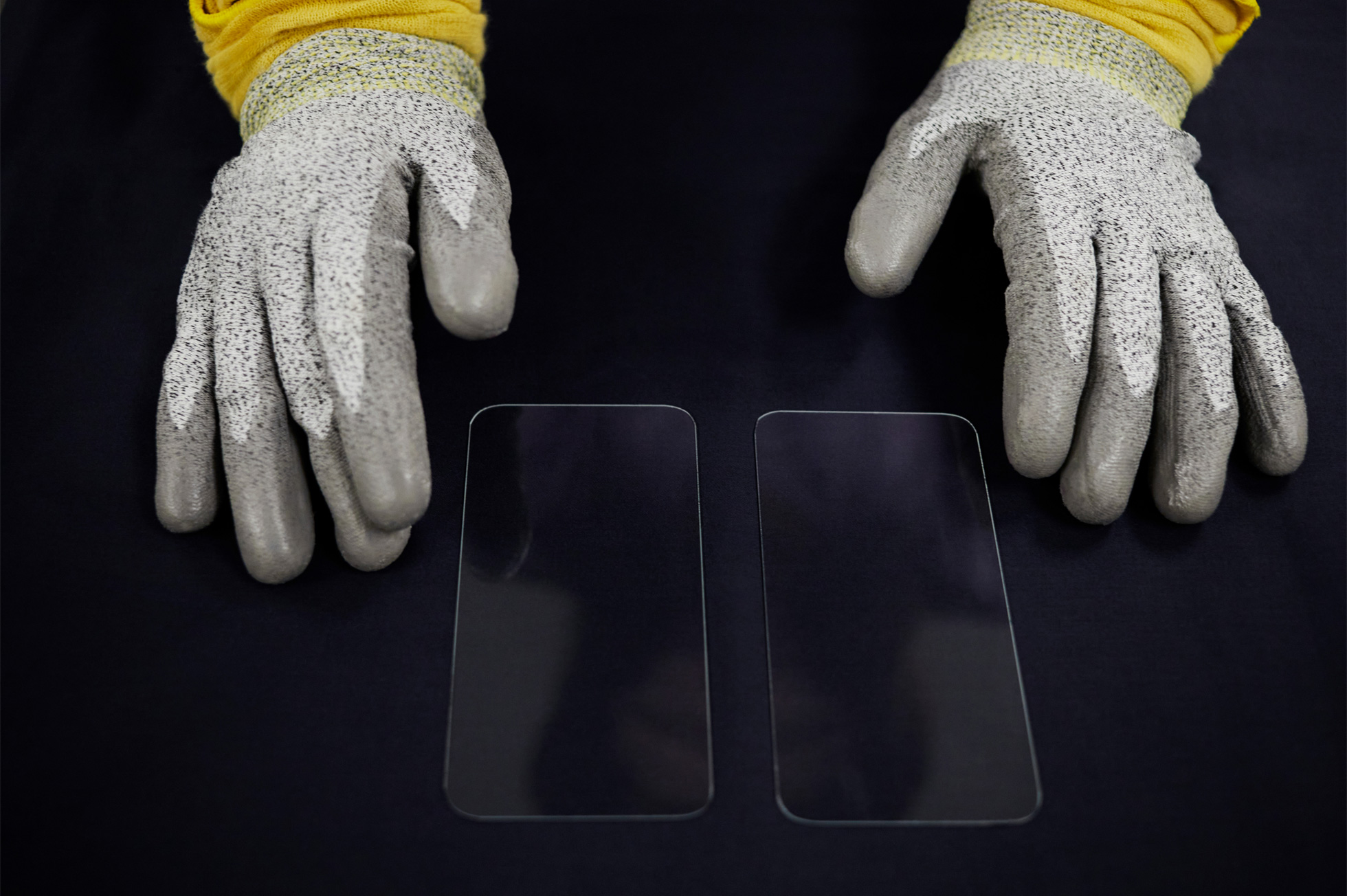
Impressive numbers
Published Press Release flaunts many numbers, all of which refer to 2020.
- 48 thousand applications were rejected by Apple for hidden or undocumented content;
- 150 thousand applications were rejected because they were spam;
- 215 thousand applications were rejected due to privacy violations;
- 95 thousand applications were removed from the App Store for violating its terms;
- A million app updates didn't go through Apple's approval process;
- more than 180 new applications have been added, the App Store currently offers 1,8 million of them;
- Apple stopped $1,5 billion in questionable transactions;
- blocked 3 million stolen cards for purchase;
- terminated 470 thousand developer accounts that violated the terms of the App Store;
- rejected another 205 developer registrations due to fraud concerns.
In the past few months alone, for example, Apple has rejected or removed apps that changed functions after initial review to become real-money gambling, illegal moneylenders, or porn hubs. The more insidious titles were intended to facilitate the purchase of drugs and offered the broadcasting of illegal pornographic content via video chat. Another common reason apps are rejected is that they simply ask for more user data than they need or mishandle the data they collect.
It could be interest you

Ratings and Reviews
Feedback helps many users decide which apps to download, and developers rely on it to bring new features. Here, Apple relies on a sophisticated system that combines machine learning, artificial intelligence and human review by expert teams to moderate these ratings and reviews and ensure their objectivity.
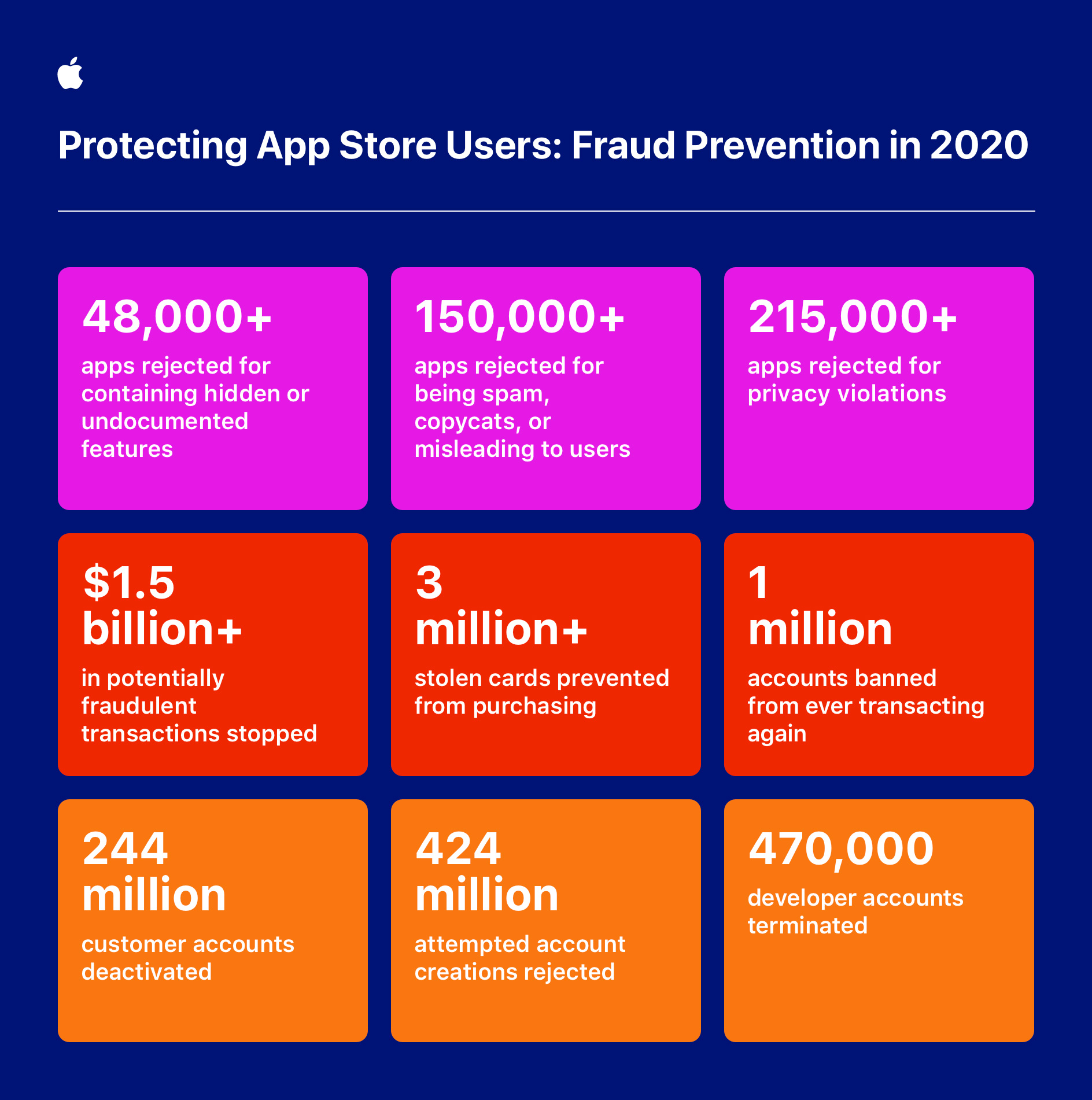
As of 2020, Apple has processed over 1 billion ratings and over 100 million reviews, but has removed over 250 million ratings and reviews for failing to meet moderation standards. It also recently deployed new tools to verify ratings and verify account authenticity, analyze written reviews, and ensure content is removed from disabled accounts.
It could be interest you

Developers
Developer accounts are often created solely for fraudulent purposes. If the violation is serious or repeated, the developer will be banned from the Apple Developer Program and their account will be terminated. Last year, this choice fell on 470 accounts. For example, over the past month, Apple has blocked more than 3,2 million instances of applications distributed illegally through the Apple Developer Enterprise Program. This program is designed to allow companies and other large organizations to develop and privately distribute applications for internal use by their employees that are not available to the general public.
Fraudsters are simply trying to distribute apps using this method to bypass a strict review process, or to implicate a legitimate business by manipulating insiders to leak the credentials needed to send illegal content.
It could be interest you

Finance
Financial information and transactions are some of the most sensitive data users share online. Apple has invested heavily in building more secure payment technologies, such as Apple Pay and StoreKit, which are used by more than 900 apps to sell goods and services in the App Store. For example, with Apple Pay, credit card numbers are never shared with merchants, eliminating the risk factor in the payment transaction process. However, users may not realize that when their payment card information is breached or stolen from another source, "thieves" may turn to the App Store to try to purchase digital goods and services.
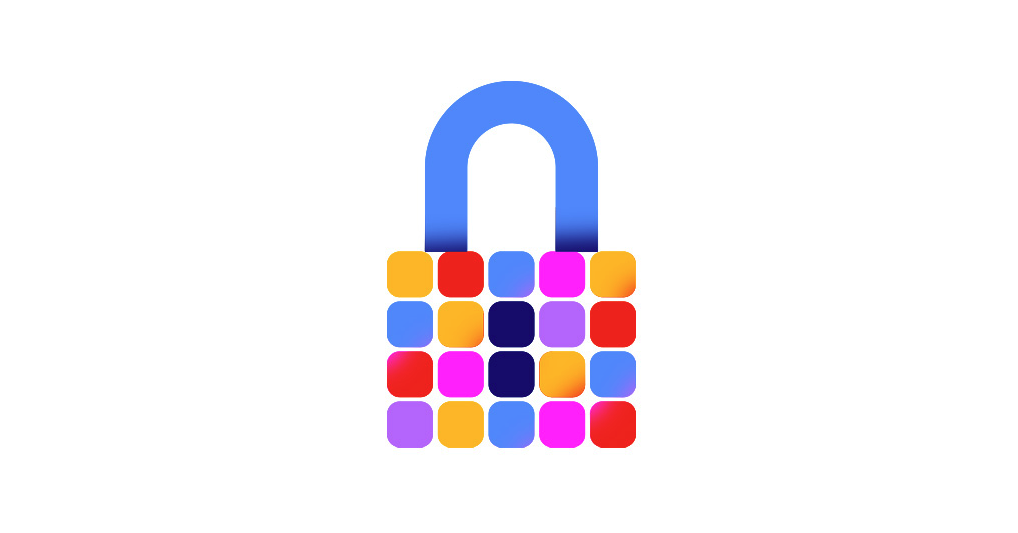
 Adam Kos
Adam Kos 